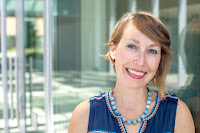Superwoman doesn’t exist- qualities of a successful woman in science (and why they help with success).

Superwoman woke up at 5am. She’d been up most of the night feeding and settling her three-month old baby, but she didn’t really need much sleep, did she? She jumped out of bed and got ready for her gym session (despite being Superwoman, those last few pounds post-baby were proving difficult to get rid of after having her fourth child). After the gym, she returned home to get the older children fed and ready for school. Her husband, Superman, was heading off to save the world again, so she took care of most things on the home front. After seeing the three oldest safely to school and taking the youngest to childcare, she made her way to the lab to start her work day. Another busy day-- It was grant season, and she was putting two in this round. She also had a manuscript to submit, two manuscripts to review and a draft of a PhD student’s thesis to finish reviewing- they were going to discuss it this afternoon. In between, she needed to pump milk for her baby every three hours, catch u...


